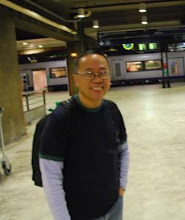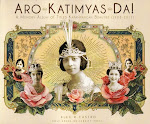
A LEADING ACTOR TO LEAD THE COUNTRY. Rogelio de la Rosa...but is he qualified? ca. early 1960s.
The Philippine Presidency, it is said, has occupational hazards that could kill. After all, three of our presidents have died at work. Yet, then, as now—the position remains as the ultimate aspiration of all Filipino political leaders, for the immense power that the office brings and glory it represents. The 1961 Presidential Elections put to fore the qualifications of the aspirants—the first, the incumbent president Carlos P. Garcia (Nacionalista), the second—the incumbent vice president Diosdado Macapagal (Liberal), and the third, a movie star-turned-senator, Rogelio de la Rosa, an Independent.
It was easy to deride Rogelio “Roger” de la Rosa for his being just an ”artista” , viewed in the light of the silver screen as a leading man, which he was, some twenty years ago. The son of Feliciano de la Rosa and Rosario Lim, he was born on 12 November 1916 in Barrio san Jose de Gumi in Lubao, Pampanga. His paternal grandfather , Francisco de la Rosa, was a Spanish surveyor, while his grandmother, Marciana Dariano was an Ilocana from La Union. Everyone knew too, that the 45 year old presidential bet had been at political odds with Diosdado, his own brother-in-law. (Macapagal was married to Purita, Rogelio's sister, who died during the war).
Dela Rosa’s first and only political experience was when he ran for the Senate of the Liberal Party and won—heavily supported by fan votes. Because of his background, he was looked at as “non-intellectual” (he went to Lubao Institute and finished Liberal Arts from Far Eastern University) . His followers, however, were quick to point out that even Magsaysay was a “non-intellectual”; he, like Dela Rosa has a practical grasp of problems and disdains convoluted, belabored discussions. As for his fans, it could not be denied that they are certainly an articulate and potent force to reckon with--part of the common “masa”.
Moreover, during the last war, when many politicians were collaborating with the Japanese-sponsored government, Dela Rosa was working as a fighter of the underground army; this he repeated when he volunteered to go to Korea to join hands with the United Nations peacekeeping forces there. As Magsaysay’s labor adviser, Dela Rosa was valued for his troubleshooting skills in resolving agrarian and rural improvement issues.
As Senator-elect who topped the polls with 2 million votes, Dela Rosa also had an enviable record, sponsoring a law to condemn the illegal appropriation of public streams and rivers by rich fishpond owners. He was known for making on-the-spot visits to the backwoods to as a way of showing deep concern for the common tao’s problems. It is interesting to note that Dela Rosa’s campaign seal shows a salakot with a pair of bakya (wooden shoes) , underlining his pro-masa approach.








1 comment:
Not all showbiz personalities are indeed incapable of leading the country. Artist like Rogeio demostrated how an ordinary artist can help improve the life of the Filipino people.
Post a Comment